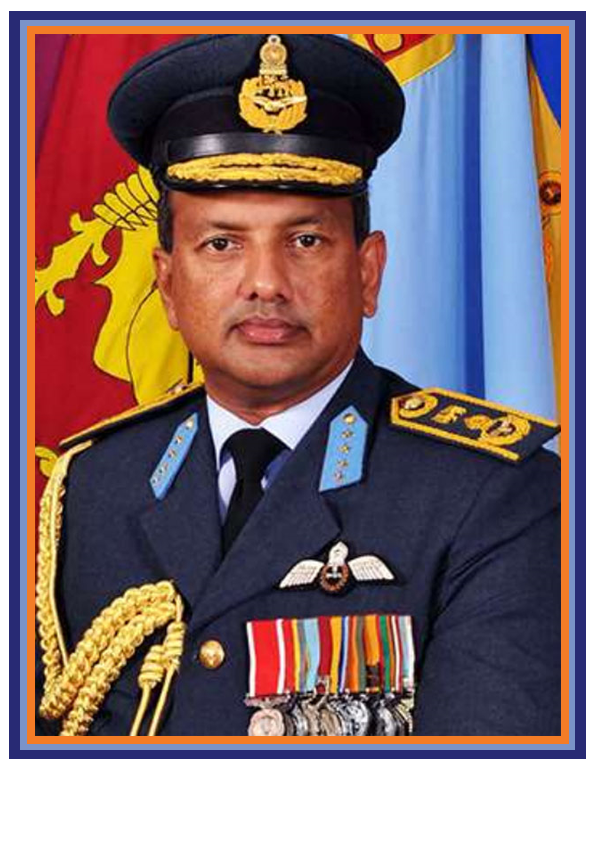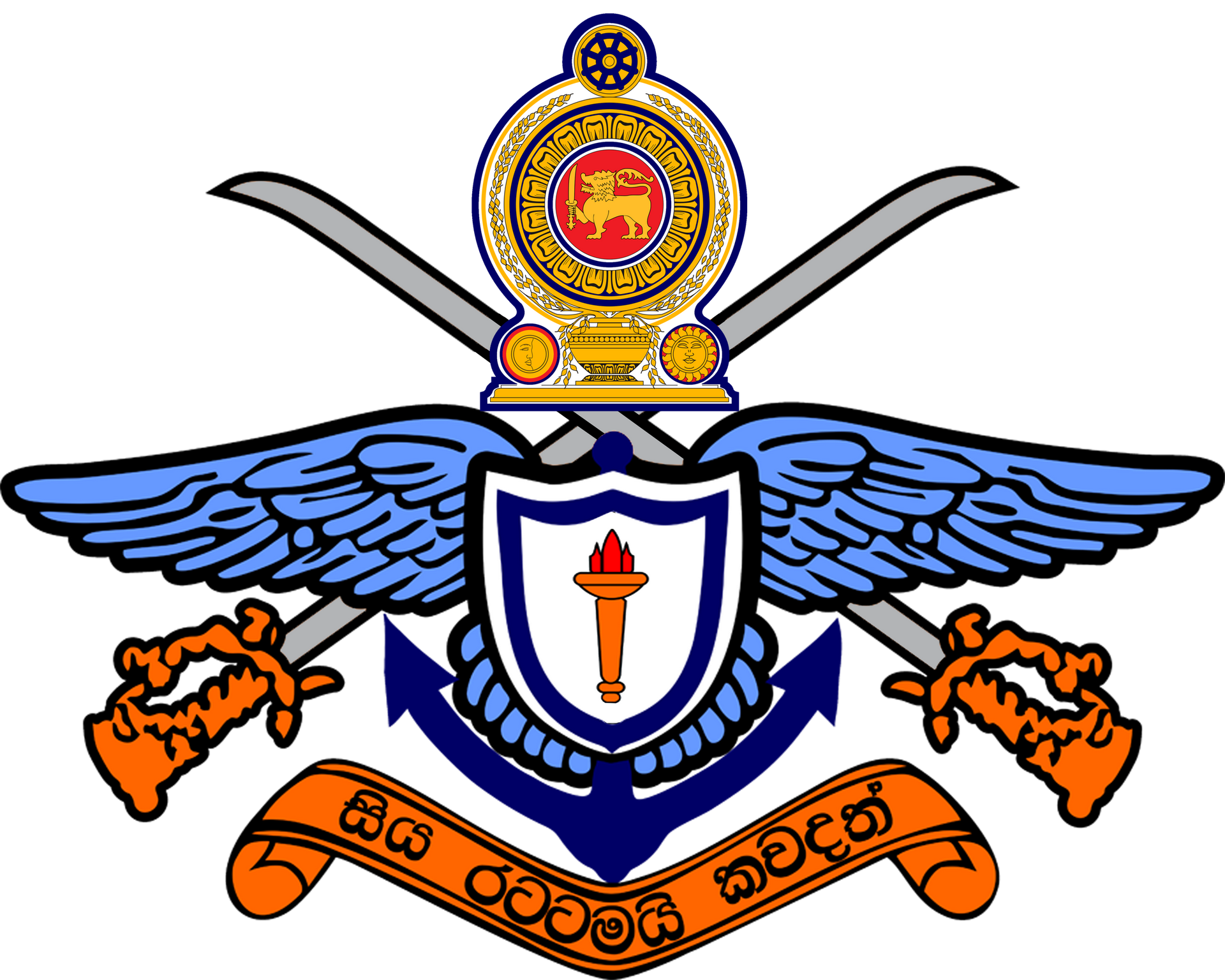Portfolio
Air chief Marshal Harsha Duminda Abeywickrama was born on 28th November 1960. He joined the
Sri Lanka Air Force (SLAF) with the 8th Intake of Officer Cadets in 1980 and was commissioned as a Pilot
Officer in 1982.
At the inception of his career in the early 1980s, combat flying was non-existent due to the relatively
peaceful situation of Sri Lanka and the only active flying Squadrons were the fixed-wing and rotary-wing
aircraft. When the separatist conflict emerged in the mid-1980s, the SLAF went into battle with the available
fleet of aircrafts. This was a challenge for the pilots of the SLAF and as a young Officer, he was one of the
foremost Pilots who took flights into such combat operations. Subsequently, he went on to log substantial
hours flying transport aircrafts and light attack aircrafts in numerous combat operations. Due to exceptional
flying capabilities, he trained as a Qualified Flying Instructor in the very early years of his career.
The escalation of the separatist conflict in the late 1980’s highlighted the importance of fighter jets.
Considering his role in the initial stages of combat, he was selected as one of the first pilots to take up
training in fighter jets. He was also given the responsibility of establishing the first Fighter Jet Squadron of
the Sri Lanka Air Force. Subsequently, he was appointed as the first Commanding Officer of No 5 Jet
Squadron, consisting of the subsonic FT 5 and the supersonic F7 Jets. Being the first Commanding Officer
of this Squadron, he inculcated a culture unique to the fighter jet pilots, commanding respect from all
quarters of the SLAF. He holds the honour of being the first Sri Lankan pilot to fly supersonic. Subsequently,
he was entrusted with the responsibility of selecting a more suitable fighter Jet for the SLAF to upgrade the
fleet. As a result, he was instrumental in inducting the Israeli-built Kfir fighter jet which proved to be an
indomitable force in the separatist conflict.
Air Chief Marshal Abeywickrama has an admirable record in active combat, and spent most of his
career in operational command appointments in the North and East including those of Commanding Officer
of the No 5 Jet Squadron, Commandant of the prestigious No 1 Flying Training Wing, Commanding Officer
of Sri Lanka Air Force Palaly, Base Commander of Air Force Bases China Bay, Anuradhapura &
Rathmalana and Zonal Commander East. He was also instrumental in establishing and heading the Air Wing
of the Defence Services Command & Staff College.
At the Air Force Headquarters, he was appointed to the Air Force Board of Management as the
Director Operations in year 2006 and thereafter as the Director Air Operations. He was subsequently
appointed as the Deputy Chief of Staff whilst continuing as the Director Air Operations in 2008, and 2011.
He was also entrusted to overlook the duties of the Director Logistics in addition to his appointment as the
Deputy Chief of Staff.
With the flying operations under his command as the Director Operations, he revolutionized the
operational doctrine of the SLAF. The most notable was the establishment of a Battle Management Centre
integrating the UAV, RADAR and other airborne observation platforms providing real time intelligence and
introducing new concepts of target acquisition commanded by Air Headquarters including target to weapon
matching, resulting in changing the strategy of air attack and the rapid development of SLAF’s air defence
capability. This revolutionary transformation was the driving force behind the many decisive and successful
air operations during the final stages of the nearly 30-year long separatist conflict in Sri Lanka.
He was appointed as the Commander of the Sri Lanka Air Force on 27th February 2011 and was
elevated to the rank of Air Marshal. His philosophy of personal leadership is radiated amongst those
commanding the various elements of the SLAF providing the necessary guidance and support to meet their
goals for the wellbeing of the organization.
Air Chief Marshal Abeywickrama is a graduate of the Air Command & Staff College at Air
University, Maxwell Air Force Base, Alabama, USA and the Royal College of Defence Studies, London,
UK. He holds a Master of Arts degree in International Studies from King’s College, University of London,
and a Master of Science degree in Management from Kotelawala Defence University, Sri Lanka. He is an
A2 graded Qualified Flying Instructor and holds a Commercial Pilot’s License with an Instrument Rating.
Air Chief Marshal Abeywickrama is a decorated combat pilot. His gallant and selfless contribution
during the separatist conflict has earned him the prestigious “Rana Wickrama Padakkama (Combat
Gallantry Medal)” twice and the “Rana Sura Padakkama (Combat Excellence Medal)”. In recognition of his
outstanding contribution to the nation he has been awarded the “Uttama Seva Padakkama (Meritorious
Service Medal)” and the “Vishishta Seva Vibhushanaya (Distinguished Service Decoration)”.
He is married to Neelika, an Attorney-at-Law, and they have one son, who is reading for a Masters Degree
in International Public Relations & Global Communication Management.
During his tenure of appointment as Commander, the Sri Lanka Air Force engaged in post conflict
Nation Building projects as well as effective utilization of the SLAF Aircraft fleet in revenue generating
commercial ventures. As a sequel to these projects, the ‘Heli-Tours’ was re-launched in a more professional
manner with the induction of the MA-60 aircraft and Mi-17 Helicopters together with the upgrading of some
of the available aircrafts to commercial status resulting in the SLAF taking the prime position in domestic
air travel of Sri Lanka. Similar commercial ventures such as the ‘Marble Beach Resort’, 2 Golf Links,
‘Eagles’ Lagoon View’ and the ‘Eagles’ Lakeside Banquet and Convention Hall’ contributed towards the
promotion of tourism in Sri Lanka.
A historical milestone for the Nation as well as the SLAF was reached, with the opening of the
runway at SLAF Station Iranamadu. The entire project was carried out by the SLAF Engineers and was the
second runway to be commissioned in post-war Sri Lanka. In relation to the SLAF; significant changes in
the management structure were implemented to increase managerial efficiency as well as promote in-house
talent. Such changes resulted in the SLAF undertaking all its civil engineering construction projects,
introduction of many welfare facilities and benefits for the Air Force personnel & civil staff and promoting
the image of the SLAF amongst the general public through numerous commercial ventures accessible to the
public. Notable among them, were the opening of the ‘Eagles’ Golf Links’ and the ‘Eagles’ Heritage Golf
Club’ at China-bay and Anuradhapura respectively, being the fourth and fifth Golf Courses in Sri Lanka
and conducting the ‘Commanders’ Cup’ Open Golf Tournament.
He relinquished command as the 13th Commander of the SLAF on 27th February 2014 and was
promoted to the rank of Air Chief Marshal in recognition of his invaluable service to the nation. After his
retirement from the Air Force, he was appointed as the Chairman of the largest state bank, Bank of Ceylon.

